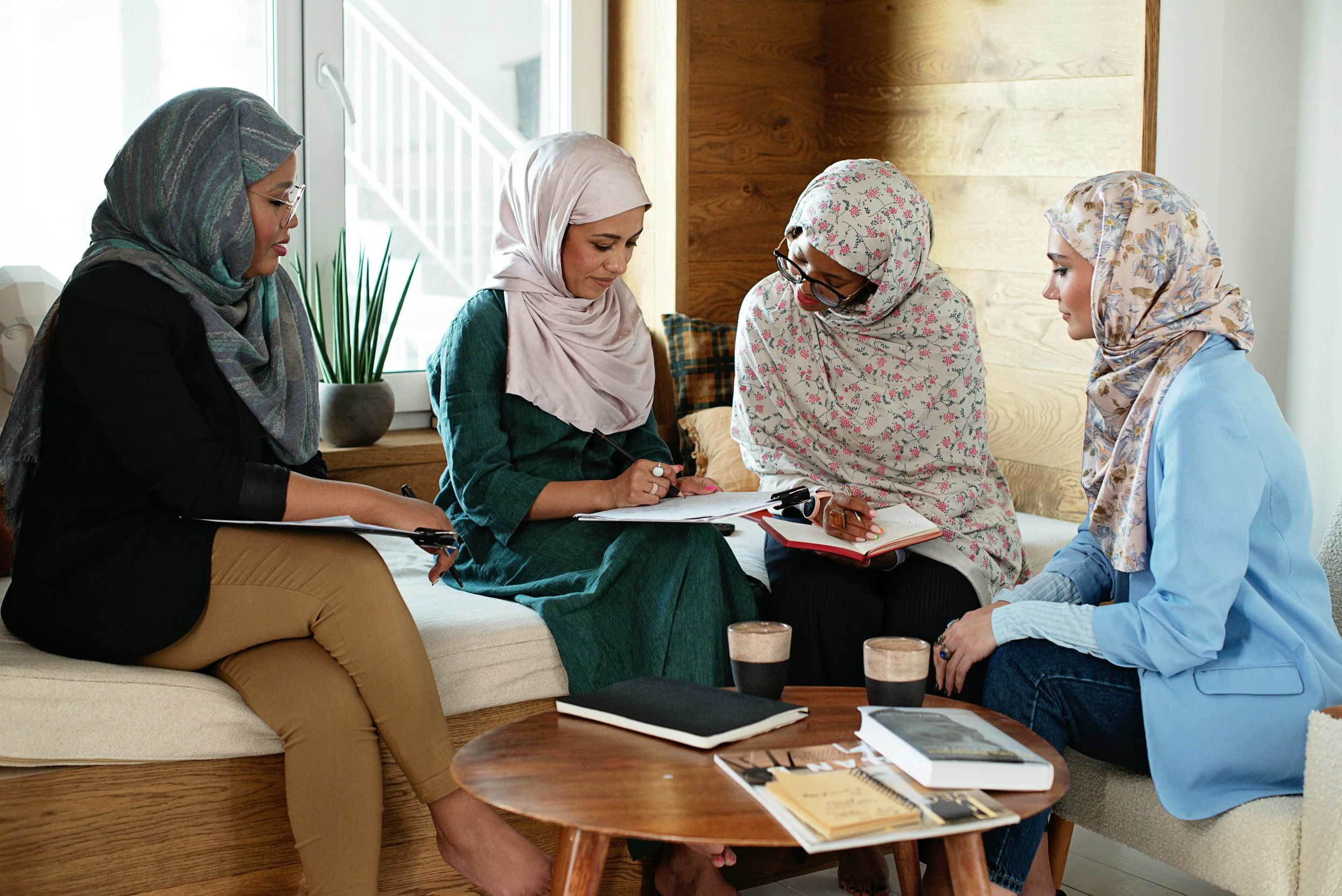Unlocking women’s capital. Period.
by Sue Coates
From menarche to menopause, periods and period poverty can be a recurring nightmare due to harmful gender norms, the silence around menstruation, period-related myths, discomfort, psychological stress, shame, a lack of toilet facilities and unaffordable and unavailable quality products of choice. Poor menstrual health and hygiene can impact health, education and nutrition outcomes, economic opportunities and psychosocial well-being. This crisis is exacerbated by the undeniable impact of climate on menstrual hygiene related production costs and supply chains; and on women’s income insecurity and shifting work patterns due to weather events, only made worse by poor sanitation and hygiene.
Sue Coates, Deputy Executive Director of the UN’s Sanitation and Hygiene Fund (SHF).
Up to 19% of women missing work in West Africa reported doing so because of menstruation. And in Dakar, Senegal, female market vendors and merchants report that they could lose between 20,000–45,000 CFA (US$34–70) monthly for missing three days because of menstruation.
The gap in products is also staggering. Multiply three to four days every month by roughly 613 million, i.e. the number of women and girls in Low- and Middle-Income Countries (LMICs) that rely on non-purpose made materials such as toilet paper or rags to manage their menstruation. That’s a big number - and a tremendous gender investment opportunity.
With the increased progress we are making on gender lens investing through the leadership and commitment of the 2X Global community, we have before us a chance to transform how women and girls access basic rights and services such as sanitation, hygiene and menstrual health, while delivering social and economic benefits along the way. Applying the learnings we have gathered in other fields to these traditionally overlooked and underfunded sectors can be game-changing, for women and girls and the societies and economies they power.
“Multiply three to four days every month by roughly 613 million, i.e. the number of women and girls in Low- and Middle-Income Countries (LMICs) that rely on non-purpose made materials such as toilet paper or rags to manage their menstruation.
That’s a big number - and a tremendous gender investment opportunity”
While sanitation, hygiene and menstrual health have not featured prominently in gender investment discussions thus far, this needs to change. Gender-lens investing is just as much about promoting equity in investment and financing decisions as it is about investing in enterprises, products and services that put women in the driver’s seat. For example, every transaction and enterprise involving women entrepreneurs and their employees, should include provision for their menstrual health.
In emerging markets, Small and Medium-Sized Enterprises (SMEs) create 7 out of 10 jobs in the formal economy, and the sanitation economy is a leader in job creation, particularly for women. According to estimates commissioned by our team at the UN’s Sanitation and Hygiene Fund (SHF), sanitation economies could unlock close to a potential USD 19 billion in economic gains, job creation, women’s empowerment and environmental protection by 2030 in Benin, Kenya, Nigeria, Sierra Leone and Uganda alone.
In countries such as Kenya and Uganda we are seeing examples of innovation in menstrual health products and business models, be it compostable pads or social enterprises delivering safe, quality and affordable products and access for women and girls in contexts where markets are limited but demand is poised to grow. These companies need capital to ensure their supply can do the same.
At SHF, we catalyse investment in and financing of national sanitation economies and the menstrual health market through our global initiative, Capital M, which aims to use grant funding to unlock capital, especially for women-led and women-centric enterprises working on menstrual health.
As part of this initiative, we are preparing a novel Menstrual Health and Hygiene Small and Medium Enterprise (MHH SME) support program offering two tracks for menstrual health companies seeking to grow their activities. The first track will focus on product innovation and research with an emphasis on environmental and financial sustainability while the second track will support companies in growing market share and access to close the last mile delivery gap and ensure products on shelves where they are in demand.
Women contribute to 37% of the world’s GDP and represent one in four high-growth entrepreneurs globally, with higher proportions in low-income countries (one in three), according to the Global Entrepreneurship Monitor (GEM) 2022/23 Women’s Entrepreneurship Report: Challenging Bias and Stereotypes.
“Yet, a girl born today will have to wait almost 100 years to be part of a gender equal society - that should be unacceptable to us all.
It is time to give her our best shot - a market-led moonshot for menstrual health.”
Yet, a girl born today will have to wait almost 100 years to be part of a gender equal society - that should be unacceptable to us all. It is time to give her our best shot - a market-led moonshot for menstrual health. Imagine the possibilities if women and girls could achieve their full potential with access to better health, education, work, economic growth and financially and environmentally sustainable sanitation and menstrual products, regardless of where they may live and if they are on their period or not. By working together and making our capital do the same, we can do this at a scale that will make a lasting difference to families, communities and economies. Together, we can make our investments go further and deeper, for generations to come.
Because this is the need of the hour, to create a gender-equal world.
Sue Coates is the Deputy Executive Director of the UN’s Sanitation and Hygiene Fund (SHF) and the Lead for Capital M, its market-led moonshot for menstrual health. SHF works with Low- and Middle-Income Countries (LMICs) to catalyse investments in robust, climate-resilient sanitation economies and the menstrual health market and deliver access to next generation sanitation and safe, quality and affordable menstrual products for all.


